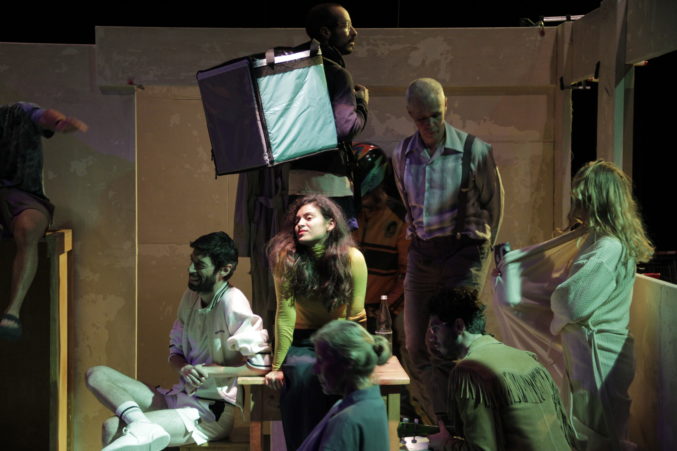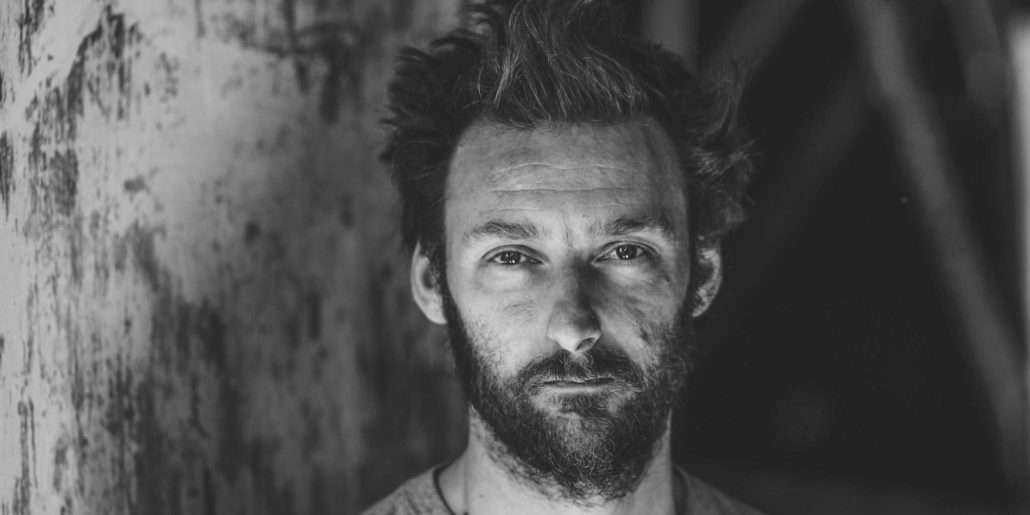Biography
Clément Layes took classes at Lyon’s professional circus school, studying art and philosophy. He studied dance at the Conservatoire National de Région and the Conservatoire National Superieur de Musique et de Danse de Lyon. He worked with Boris Charmatz, Odile Duboc and Yval Pick, among others. In 2003, he began his choreographic research in the collective ALS (as, comme). Since 2008, he has worked in Berlin and founded the company Public in Private with Jasna Vinovrški. He develops a method of working that confronts choreography, visual art and conceptual thinking in an investigation around everyday objects. This research led to his solo work “Allege” premiering at Sophiensaele Berlin in 2010 and being presented at festivals and venues in Europe.
More info
Photo: Joeri Thiry
In residentie The eternal return
05.10.2017 – 05.10.2017

In “The Eternal Return”, Clément Layes and a group of collaborators use the instrument of theatre to depict the various collective and individual rhythms that govern our lives. In doing so, the intention of the performance is to explore how we define and maintain our individual and collective identity through the creation of rhythmic narratives and how, while creating those narratives or refrains, we are always dependent on other persons, things or rhythms. As such, Eternal Chorus seeks to expose the fragile and incessant polyrhythmic process underlying our subjective, objective and collective temporalities.
To this end, “The Eternal Return” will work with repetition and accumulation: repetition of movement and accumulation of people. During the performance, 15 people will enter a small room one by one. Each person will have his or her own behaviour. Once they have entered, each person will stay and repeat his or her sequence. As the number of people increases and forms a crowd, these repetitive acts will begin to intertwine and sync with each other, creating a multitude of possible temporalities and individualities. Here, the audience’s attention is shifted from the performers themselves and their actions to the rhythmic relationships unfolding between them.
The idea of eternal return plays a central role in the work of German philosopher Friedrich Nietzsche. According to Nietzsche, the idea of the eternal return can be terrifying and paralysing, but can also be the source of eternal bliss if we accept and even embrace this fate and we live each moment as if we would like to repeat it endlessly. With “The Eternal Return”, we want to encourage constant reflection on this idea. We propose to let go of the modernist obsession with speed, novelty and invention – where “standing still equals going backwards” – and look for the new in the repetitive: the new that comes by understanding the repetitive patterns in which we are entrenched, patterns of action, behaviour, politics; the new that comes by recognising repetition. In this way, we offer a temporality that is not understood as a straight line, but rather as a constant process of repetition. “Everything straight is a lie,” muttered the dwarf contemptuously. “All truth is crooked; time itself is a circle.”

